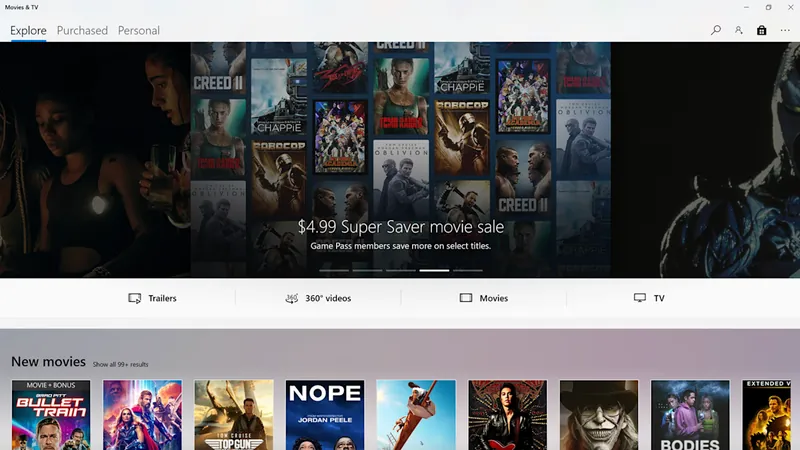
Chatbots Revolutionize Clinician Communication and Boost Vaccine Uptake
2025-06-11
Author: Benjamin
A New Epidemic Looms: Measles Strikes Back
Measles is staging a comeback, with a staggering 2,968 cases reported in Canada alone as of May 31, 2025. These alarming outbreaks are largely fueled by missed childhood vaccinations, not solely due to access issues but also stemming from crucial conversations that never took place.
The Communication Gap in Healthcare
Clinicians are eager to help patients make informed health decisions, but these discussions can be challenging. Establishing trust is vital, and healthcare providers must navigate complex conversations fraught with misinformation and misunderstandings.
Enter Artificial Intelligence: A Game Changer
While AI is already transforming diagnostic and administrative tasks in healthcare, its emerging role as a training tool for interpersonal communication could be a revolutionary step forward.
Our research team is delving into how chatbots can assist clinicians in practicing tough conversations concerning vaccines. These innovative tools offer cost-effective, emotionally resonant, and psychologically safe environments for healthcare professionals—regardless of their location.
Transforming Isolation into Opportunity
For clinicians in remote areas with limited access to workshops, chatbots represent a flexible, scalable method for enhancing communication skills and understanding patient concerns. Even in well-resourced regions, busy healthcare providers can benefit from the convenience of chatbot training.
Better Conversations Lead to Higher Vaccination Rates
Research reveals that improved communication strategies can significantly boost vaccine uptake. Brief interventions, such as training in motivational interviewing, have shown tangible effects on patient trust and behavior.
Chatbots enable this kind of training on a larger scale. Studies by computational social scientist David Rand illustrate how AI can effectively engage in social conversations and persuade individuals.
Real Practice for Real-World Impact
Our research indicates that clinicians who practiced with simulated patients reported increased confidence and readiness. They could rehearse responses, receive feedback, and explore various conversational pathways, better preparing them for real-life interactions.
Creating Conversational Confidence Through the AIMS Method
Chatbots can train clinicians in using the AIMS method—announce, inquire, mirror, and secure trust—while addressing potential vaccine hesitancies. For instance, a chatbot could role-play as a concerned parent, allowing physicians to practice their approach in a low-stakes environment.
Stay Ahead of Misinformation
As misinformation evolves rapidly, clinicians must not face it unprepared. By constantly updating chatbot scenarios based on the latest misleading claims, we equip healthcare providers to respond effectively to current narratives, especially when trust in institutions is waning.
Building Trust Through Practice
Beyond train-the-trainer approaches for vaccine skepticism, AI-based chatbots have successfully tackled issues like smoking cessation and stress reduction. This growing field emphasizes the need for ongoing clinical education that empowers clinicians to combat misinformation.
The Frontline of Public Health Needs Support
As vaccination rates dwindle and mistrust rises, clinicians stand at the forefront of public health efforts. Equipping them with advanced tools to foster trust is paramount. Building trust—like a sturdy bridge—requires time and multiple conversations, making practice essential.









 Brasil (PT)
Brasil (PT)
 Canada (EN)
Canada (EN)
 Chile (ES)
Chile (ES)
 Česko (CS)
Česko (CS)
 대한민국 (KO)
대한민국 (KO)
 España (ES)
España (ES)
 France (FR)
France (FR)
 Hong Kong (EN)
Hong Kong (EN)
 Italia (IT)
Italia (IT)
 日本 (JA)
日本 (JA)
 Magyarország (HU)
Magyarország (HU)
 Norge (NO)
Norge (NO)
 Polska (PL)
Polska (PL)
 Schweiz (DE)
Schweiz (DE)
 Singapore (EN)
Singapore (EN)
 Sverige (SV)
Sverige (SV)
 Suomi (FI)
Suomi (FI)
 Türkiye (TR)
Türkiye (TR)
 الإمارات العربية المتحدة (AR)
الإمارات العربية المتحدة (AR)